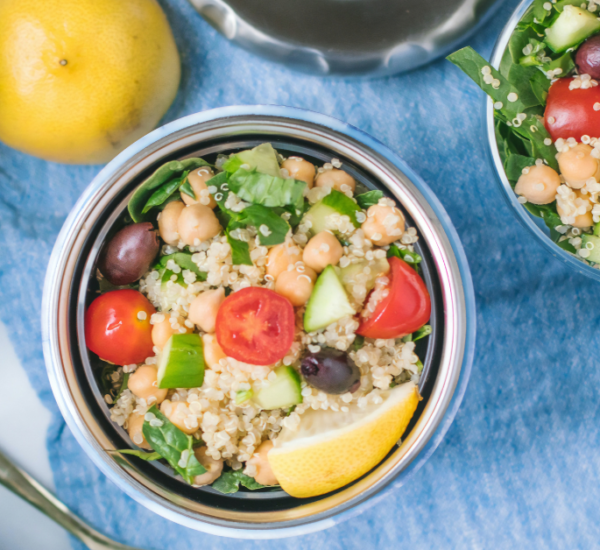The Fast Diet – or 5:2 Diet – isn’t a new concept: many religions have fasting practices. There is also evidence that fasting can help with weight loss and health.
Intermittent fasting is as effective as continuous calorie restriction for weight loss, and may reduce your risk of developing Type 2 Diabetes and help control cholesterol and blood pressure.
What is the 5:2 Diet?
The 5:2 diet is an ‘alternate day’ fasting diet, where you fast for two days of the week. For women this means eating only 500 calories (men are allowed 600 calories) on two days and eating normally for the other five days of the week. Like any diet there are pros and cons, so today I’m weighing in on the good and not-so-good points of this latest diet trend.
Pros of the 5:2 Diet
- The diet is very flexible and you choose which days are fasting days and how you want to split up your calorie allowance. It could be between breakfast, lunch and dinner or just as a main meal.
- The diet is not restrictive and there are no banned foods. This means that you can eat sensibly for five days each week. On fasting days it will be important to make every mouthful count and make sure each is as nutritious as possible.
- The two fasting days encourage you to plan your meals so that you are eating the correct amount of calories.
- Dieting is not such a long process and you only have to be on a ‘diet’ for two days of the week. It’s also easier to stick to when you know that you can eat normally the next day.
- You won’t feel deprived of anything because you can eat your favourite foods on five of the seven days of the week.
Also read: Are These the Top 10 Worst Diet Tips Ever?
Cons of the 5:2 Diet
- Sticking to such as low calorie limit doesn’t allow for much food throughout the day and you will likely be eliminating food groups to fit in with the strict calories.
- The program is very flexible and some people may find themselves fasting less and less.
- You may find that you start over-eating on non-fast days to compensate for the lack of food on the fasting days, making the fasting days pointless.
- Eating normally for five days may not be effective if your diet is already quite poor. You will need to focus on improving what you eat as a part of your ‘normal’ days to achieve the best results.
- It will be hard to exercise on fasting days as your body is only running on 500 calories.
- On fasting days you may feel tired, have a lower attention span and energy levels.
- Fasting days where you only eat 500 calories may encourage disordered eating patterns and may not be sustainable long-term.
- The 5:2 Diet does not address exercise or mindset, which are essential components to achieve sustainable long-term weight loss.
- There is evidence of the health benefits of intermittent fasting in animal studies, but the long-term health benefits and risks in humans are unclear. Compared to other weight loss methods there is limited evidence in this area.
- The diet is not suitable for everyone, especially if you have insulin dependent diabetes, are pregnant, a child or teenager or have an eating disorder.
If you are trying the 5:2 approach, focus on the quality of your diet for five days of the week and make sure that you make every mouthful count on the two fasting days so that you get the most nutrition for the limited calories that are allowed.
Following this approach may help you become more in-sync with your body and understand your appetite and feelings of hunger. Remember to listen to your body, eat mainly whole, unprocessed foods, and eat when you are truly hungry.









